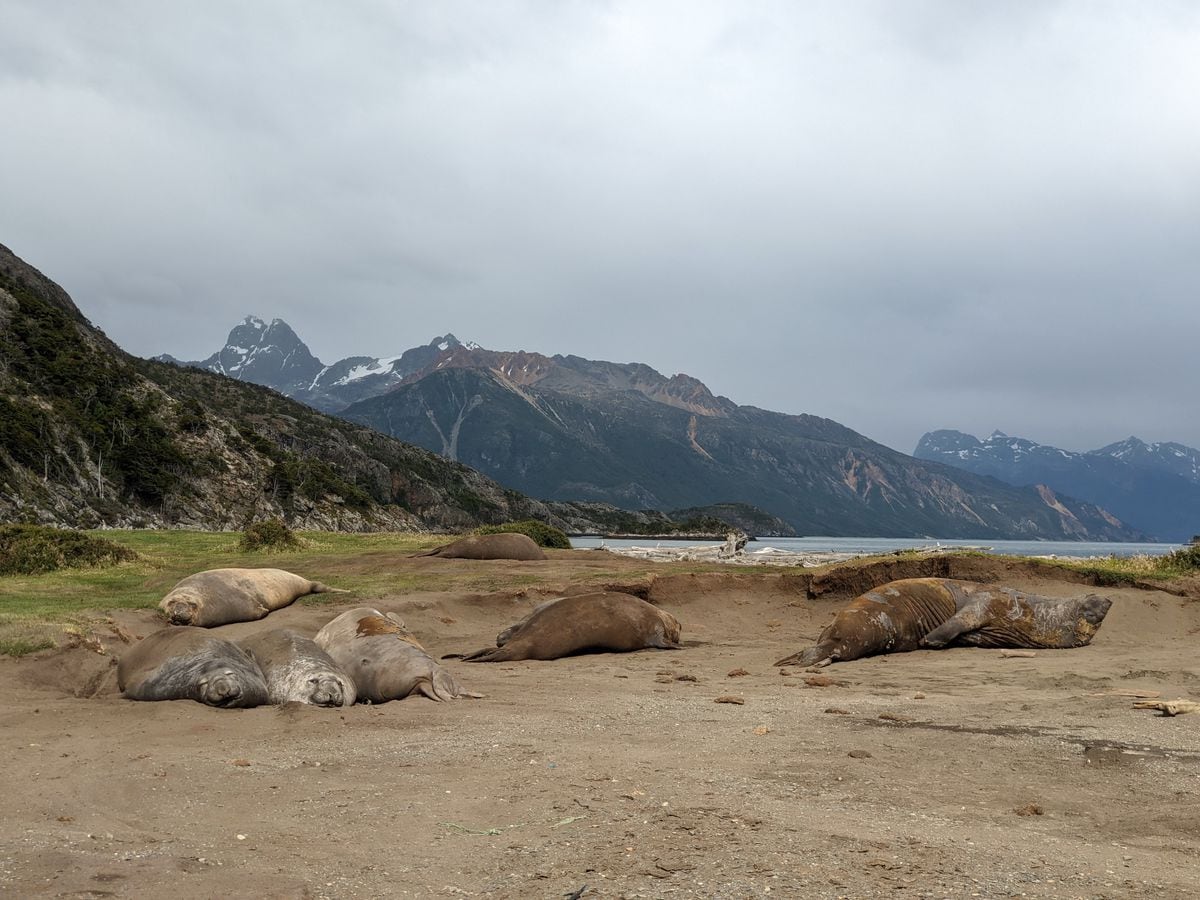Icon: enlarge
Destruction of the rainforest in Indonesia
Photo: Ulet Ifansasti / Greenpeace
Those who want to shop consciously can quickly lose their bearings: frogs, pandas, angels or flowers - the eco-label index lists 456 such often picturesque sustainability seals.
Whether coffee, cocoa, wood or palm oil: Because morality seems to be worthwhile, many companies no longer just put zero statements such as "from controlled cultivation" on their goods, but have their raw materials checked by certification systems.
The business with the quality marks has become a billion dollar industry: the Dutch company UTZ alone earns over 200 million dollars a year through fees.
At the Forest Stewardship Council (FSC), the best-known seal for sustainable wood, the certified amount grew by 86 percent between 2010 and 2020 - 223 million hectares of forest are now FSC-certified.
But doubts about the seals are mounting.
In many places they were unable to slow down overexploitation, on the contrary: 50 million hectares of forest, six times the area of Austria, have been cleared worldwide in the past five years.
In the Romanian Carpathians, which are among the last primeval forests in Europe, deforestation is spreading despite the sustainability seals.
"Systems like FSC or the RSPO palm oil seal, with their weak, inconsistent standards and often inadequate controls, cannot do anything against the exploitation of the planet and the violation of human rights," says Ursula Bittner from Greenpeace.
The Austrian is co-author of the current report "Certified Destruction".
The results of the investigation are sobering: It took three decades, according to Bittner, to realize that the certification systems, which were often privately founded, were “the wrong way”.
Instead of using »pretended sustainability« to stimulate demand for raw materials that are hazardous to forests and nature, stricter forest protection and supply chain laws are needed.
In contrast to what is planned in the German Supply Chain Act, for example, certifications could in no way serve as proof that a law has been complied with.
Often the big ones violate the standards
The case studies in the Greenpeace report show the weaknesses of the systems - and not just using the example of any small businesses.
It is often the big companies that are suspected of violating standards or destroying the environment.
SLC Agricola, for example, was one of the largest Brazilian agricultural producers and a member of the soy flagship label Round Table on Responsible Soy (RTRS).
Between 2011 and 2017, according to research by an American NGO, the group cut down almost 40,000 hectares of forest in the Cerrado, a savannah region with a high level of biodiversity, which the RTRS allegedly advocates to protect.
In 2018, SLC Agricola also announced participation in Lidl's sustainable soy initiative.
An Agricola spokesman announced that the correct number in the Cerrado was 37,931 hectares.
How does the clearing fit in with the RTRS principles?
The answer is that the RTRS principles do not apply to farms that are not certified.
In such areas, RTRS does not examine the deforestation.
In order to be able to clear clearances, the company had apparently simply divided a subsidiary operating in the region into two parts, one with the RTRS seal of approval and one with the license to clear-cut.
RTRS says it is one of the strictest certification systems.
However, the farm in question is not RTRS-certified, and one cannot comment on that.
Questionable wood for Ikea
Another case, which the Greenpeace report takes up, raises doubts as to whether FSC certification can actually guarantee sustainable wood and even legality.
An investigation by the environmental organization Earthsight last year brought to light questionable felling of allegedly sick trees in the Ukrainian part of the Carpathian Mountains.
It was about illegal concessions between 2018 and 2020 and a Ukrainian company that supplied Ikea with the raw material.
Ikea says the investigation does not provide any indication that illegal wood has entered its own supply chain.
Nevertheless, the interpretation of the Ukrainian laws regarding "sanitary" felling during the wild animal rest periods in the forest is "challenging".
A challenge that apparently overwhelmed the FSC.
An FSC spokesman admits that the process is still being addressed by »an inquiry to the national FSC organization or the responsible certification body«.
There is talk of questions of interpretation regarding the scope of the local protection requirements - as if the FSC had to submit to inconsistent regional regulations.
According to the Earthsight report, the FSC suddenly reacted in November 2020.
Since then, it is said, "sanitary" cases during the rest periods have led to the certificate being suspended.
Icon: enlarge
Fire on a plantation in Indonesia
Photo: Ardiles Rante / Greenpeace
The forest rangers were similarly hesitant in the case of the South Korean-Indonesian palm oil and energy company Korindo.
In an investigation, the FSC itself accused the company of several violations of standards: The company had not only destroyed tens of thousands of hectares of rainforest, but also violated the rights of the indigenous population.
Why didn't this lead to the expulsion?
Korindo has pledged to "improve," and that is more beneficial for the environment and the affected communities than exclusion.
Complete traceability: impossible
After all, in this case it was possible to clearly identify a guilty company.
Often, according to the Greenpeace report, this is impossible.
The chances of pursuing violations are "minimal".
The palm oil label RSPO (Roundtable on Sustainable Palm Oil) and the FSC, to which Greenpeace itself belonged until 2018, took care of a certain degree of transparency.
Otherwise none of the large systems publish maps of certified areas and company areas.
The sobering conclusion: "A complete traceability system that enables raw materials to be traced from source to end product and vice versa is not intended for any raw material that poses a risk to forests and ecosystems." the frequently approved raw material mixes, as is common with palm oil or soy.
Instead of working towards a strictly separate supply chain for the certified goods, mixing with non-certified goods has so far been tolerated according to a certain key.
The ownership structure of some companies seems to remain similarly obscure: According to the report, none of the certification systems require transparency about the actual owners.
These could steal from the responsibility for environmental crimes through nested company structures, so that it is impossible for buyers to recognize them.
Icon: enlarge
Palm oil learned in the Congo Basin
Photo: Micha Patault / Greenpeace
In view of the findings of the report, Greenpeace proposes far-reaching reforms of the certification system.
The majority of the systems' governing bodies should be made up of representatives of social and ecological interest groups as well as indigenous and local communities.
Certified products must be completely traceable from the producer to the consumer.
In addition, companies that clear forests despite the ban should be able to be obliged to recultivate them.
In addition, inspectors who perform the audits should not be paid directly by the certification systems.
In this way, conflicts of interest are to be excluded.
This may also prevent favors such as those recently revealed in the affair involving the Russian BM group.
The logging giant, which cultivates an area the size of Belgium in the Far East of Khabarovsk, was accused of illegal clearing.
Despite the sustainability seal.
A friend of a BM representative is said to have taken care of the certification.
Icon: The mirror









